What is it? Why it is important to be addressed ?

There are many different experiences that can constitute trauma. Childhood trauma is an event experienced by a child during there childhood. It constitutes of any event, action or instances that jeopardize a child’s mental and physical well-being. For example, it can be an accidental event that leads to a near-to-death experience, or the loss of a loved one, being simply refused to eat ice-cream and can even constitute any sexual or physical abuse. Childhood trauma does not really have to be inflicted directly.
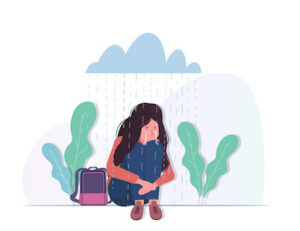
The past doesn’t always really stay in the past. Your past traumas still impact your life. There is no ‘if’ you experienced it, because the truth is we all are inflicted by traumas from our childhood in one way or the other. Traumatic experiences (however small or big) we had when little, are still present when we become an adult (if not dealt with).
It would be right to say that sometimes we do not know how to begin to heal.
A childhood trauma impacting your adult life can be distressful, making one feel everything is turned upside down? And question, why now? Unresolved trauma, lives deep inside of us. One could even allege it gets in the bones. The memories, even if pushed away and not conscious, are imprinted into our symptoms, in our relationship struggles, nightmares, body language, eating habits and into our level of self-esteem too.
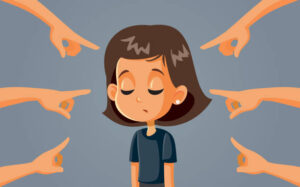
Why “the past” isn’t always the past? Traumatized children often feel they’ve always been on their own have done the best they can without seeking help. There is often an ingrained sense of fear, helplessness, and behavior that relies on external validation.
A psychoanalyst well known in the world of psychology, once said we have a “compulsion to repeat,” even if we try not to. True to that, we often find ourselves in relationships that remind us of those people and circumstances that traumatized us in the past.
There are many different forms our symptoms or behaviors might take shape. These are very subjective and individual to each being. The important thing is to know: The past is never “just” the past; Till the time, you have really had help working worked towards resolving it
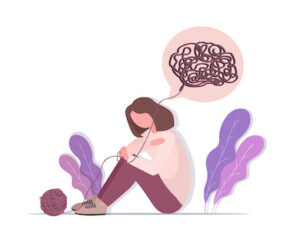
Some common causes:
- Neglect
- Loss of a parent
- Serious childhood illness
- A learning disability
- Too many siblings
- Single Child
- Emotionally unavailable, detached or anxious parents
How to find out if your childhood trauma is impacting you as an adult:
- Unstable & unhealthy relationships
- Lack of confidence in oneself
- Inability to trust other people
- Intense feeling of guilt and shame
- Resorting to addiction in order to forget about past traumas
- Poor mental health
- Emotional Outbursts
- Learned Helplessness
- Inability to ask for help
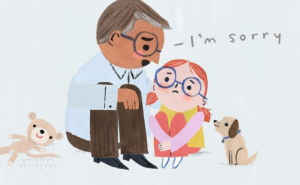
Healing From Childhood Trauma Unresolved childhood trauma can be healed! Seek out therapy with a therapist who is experienced and trained in working with childhood trauma. Therapist trained in psycho-dynamically are generally trained to work with childhood trauma.
Some therapeutic techniques that are commonly applied when dealing with childhood trauma are:
- Clinical Hypnosis: Conflicts induced by childhood trauma live deep inside the sub-conscious mind, so hypnosis is one of the most effective way to reach it. To make it clear, healing childhood trauma with hypnotherapy does not mean that you have to relive the childhood trauma again. Hypnotherapy gives you a safe environment to focus on resolving the conflict and processing and re-cataloging your memory so it no longer intervenes with your life and disturbs you.
- EMDR: Eye movement desensitization and reprocessing (EMDR) Eye movement desensitization and reprocessing is another therapy for treating trauma. EMDR works because the “bilateral stimulation” by-passes the area of the brain that has become stuck due to the traumaand is preventing the left side of the brain from self-soothing the right side of the brain.
- Cognitive processing therapy – This typically involves education regarding how trauma is impacting our thoughts and emotions followed by formal processing of the trauma and skill development to identify and address unhelpful thinking related to traumatic events.
- Trauma-focused cognitive behavioral therapy (TF-CBT) – This is an evidence based model which incorporates trauma-sensitive interventions with cognitive behavioral techniques, humanistic principles, and family support that relies on the participation of trusted parents and caregivers in the treatment process. TF-CBT is effective for children, teens, and adolescents who have significant emotional difficulties from a traumatic event.
Other therapies often used in integration are – Narrative exposure therapy, Play therapy, Prolonged exposure therapy, family therapy and art therapy.
Long-term effects of childhood trauma can increase the risk of mental health conditions like PTSD and depression, chronic illness, or substance use disorders. Depending on the type of trauma and how long it occurred, treatment may take a while, especially if one is addressing the issues as an adult.
Mental health professional like psychologists, therapists, psychiatrists and psychotherapists can help one deal through the childhood trauma.
If you, or someone you care for, thinks exhibits any signs of the trauma, please reach out to your nearest mental health care professional, ‘to nip it in the bud’ and build a healthier life for yourself.


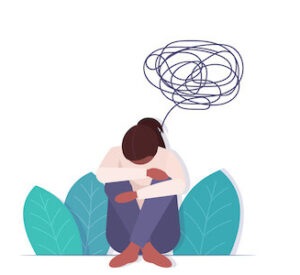
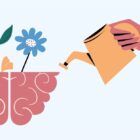
Recent Comments